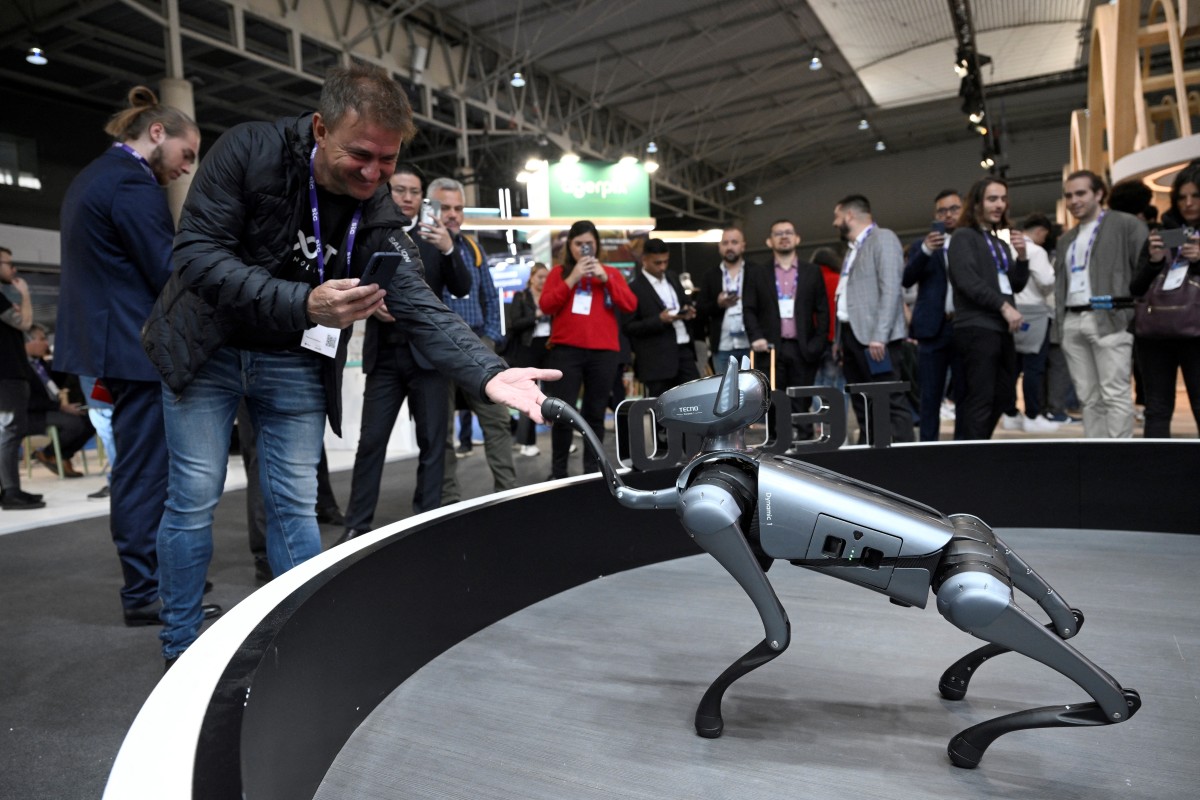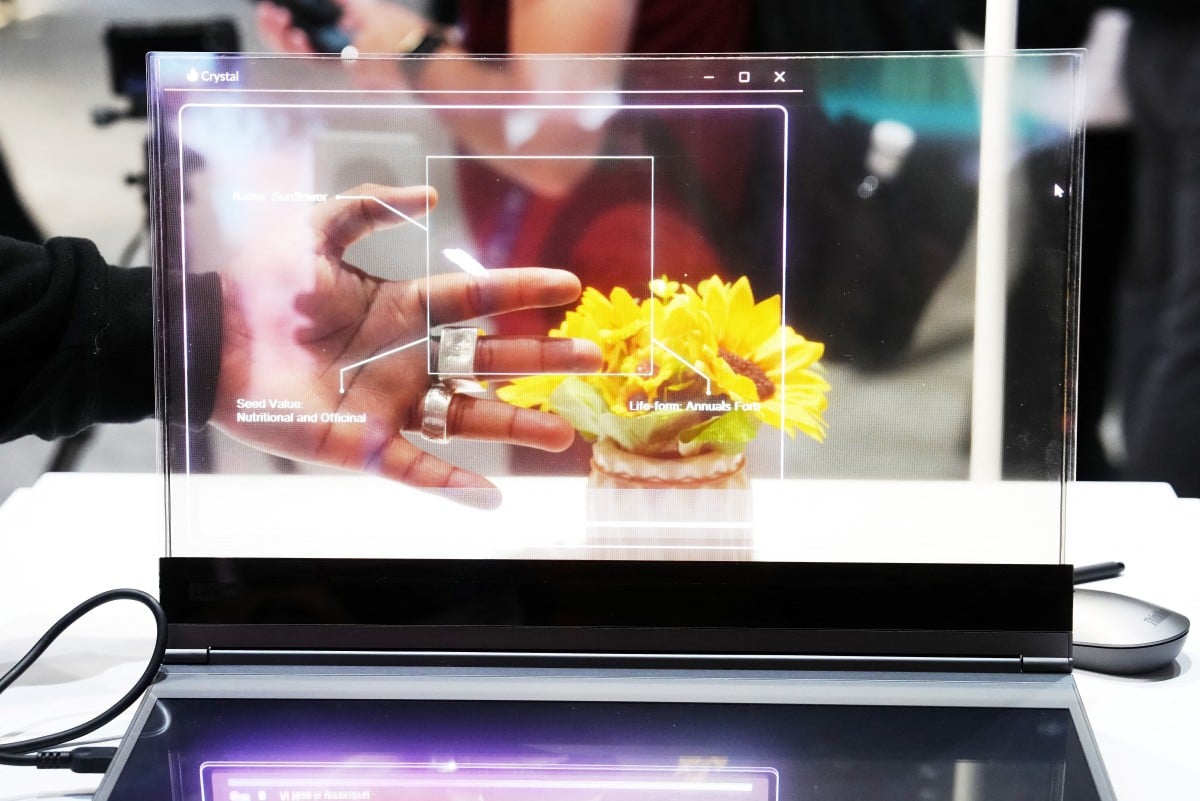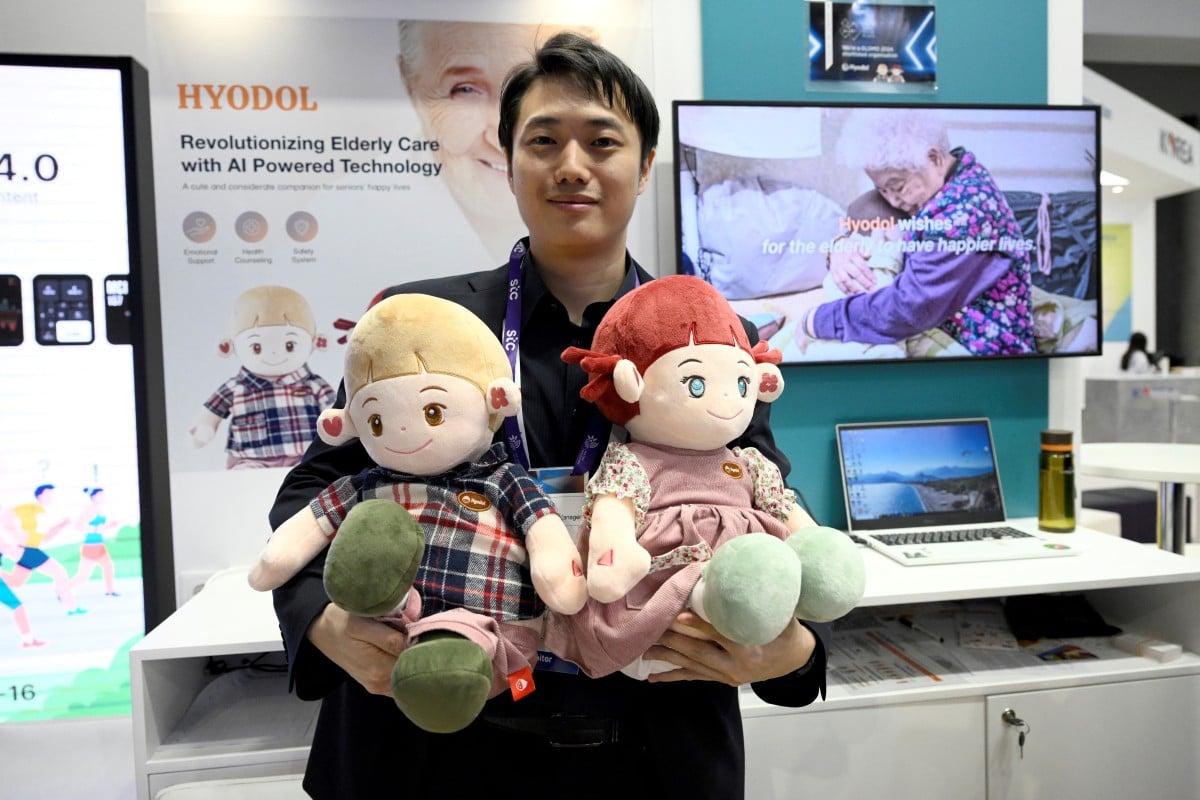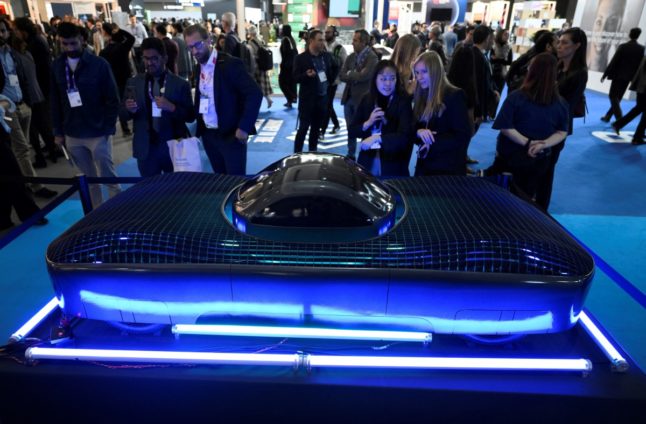‘World’s first’ flying car
US firm Alef Aeronautics displayed to the public for the first time the working model of what it says is the world’s first real flying car.
“It drives like a car, looks like a car and has a vertical take-off,” said the company’s president and CEO, Jim Dukhovny.
The electric-powered car has received special airworthiness certification from the US Federal Aviation Administration (FAA).
The current prototype (seen above) can transport two people a distance of up to around 110 miles (170 kilometres) and the company expects to start production of a final version at the end of 2025.
The company has already received nearly 3,000 pre-orders for the car, which sells for $300,000.
Robotic dog
Chinese firm Tecno Mobile showed off a robotic dog inspired by the German Shepherd which uses AI and powerful sensors to understand voice commands and perform lifelike actions such as bowing, shaking hands and climbing stairs.
The robot –- dubbed the “Dynamic 1” — can be controlled by a smartphone apps as well, and it aims to provide the “joy of pet ownership” without the hassles.

Transparent laptop
Chinese manufacturer Lenovo presented a prototype of a laptop with a 17.3-inch transparent glass screen which offers “a completely borderless and see-through display experience”.
Instead of a traditional keyboard, it has a touch surface where keys can be projected or you can use a special pen to draw on the screen. The company has not announced a release date for the product.
The screen’s transparency can be adjusted so that not everyone who passes by can always see what you are doing.
“The transparent display existed only in futuristic movies, maybe in AR glasses. That’s only in the past as we can see,” said Lenovo executive director Aiguo Zheng.

AI-powered companion doll
With its cloth body, floral blouse and brown hair, Hyodol has all the look of a children’s doll. But Hyodol — made by a South Korean company of the same name — is aimed at seniors.
Packed with sensors and AI-power microprocessors, it can play songs, remind seniors with a voice message to take their medicine and can notify the guardian of its user when no movement is detected for a certain period of time.
Standing 35 centimetres (14 inches) tall, the doll is designed to talk when touched by the user and in accordance with customisable time settings such as meal times.
“We are committed to empowering seniors to live independently while staying connected with their community and loved ones,” the company said.

Impaired speech voice converter
Dutch startup Whispp demonstrated a calling app which uses AI technology to covert impaired speech due to conditions such as throat cancer, stroke or even stuttering into the user’s natural voice in real time.
Unlike other solutions for people with voice disorders which convert speech to text, the app allows the user to talk to anyone they want on their phone or laptop and maintain a natural conversation flow, while sounding like their own healthy voice.
“We are really helping people who lost their voice get their voice back,” said Whispp co-founder and CEO Joris Castermans, adding he hopes the app will one day be on all smartphones “to make this a more inclusive world”.



 Please whitelist us to continue reading.
Please whitelist us to continue reading.
Member comments